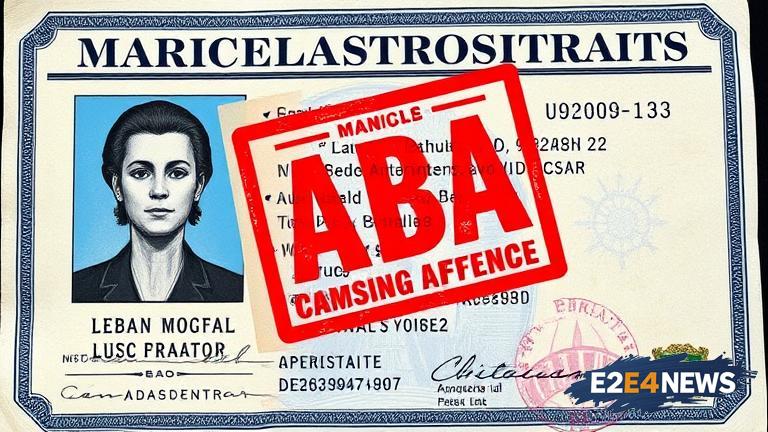A disturbing trend has emerged in recent times, where scammers are preying on unsuspecting immigrants by using fake American Bar Association (ABA) logos and credentials. These scammers are exploiting the trust and credibility associated with the ABA, one of the most prestigious legal organizations in the United States. The scammers are using various tactics, including creating fake websites, social media profiles, and documents, all bearing the ABA logo and credentials. Their primary goal is to deceive immigrants into paying for fake legal services or providing sensitive personal information. The ABA has issued warnings and alerts to its members and the public, urging them to be cautious when dealing with individuals or organizations claiming to be affiliated with the association. The scammers are targeting immigrants who are often desperate for legal assistance and may not be familiar with the legitimate channels of seeking help. The fake ABA credentials are being used to gain the trust of these individuals, who may then provide financial information, personal documents, or other sensitive data. The consequences of falling victim to these scams can be severe, including financial loss, identity theft, and emotional distress. The ABA is working closely with law enforcement agencies to track down and prosecute these scammers. In the meantime, the association is advising immigrants to be vigilant and to verify the credentials of any individual or organization claiming to be affiliated with the ABA. The ABA has also set up a dedicated webpage to provide information and resources to help immigrants avoid these scams. The webpage includes tips on how to spot fake ABA credentials, as well as a list of authorized ABA entities and contact information for reporting suspicious activity. The ABA is also collaborating with other organizations, including the Federal Trade Commission (FTC) and the National Immigration Law Center, to raise awareness about these scams and to provide support to affected individuals. The issue of scams targeting immigrants is not new, but the use of fake ABA credentials has added a new layer of complexity to the problem. The ABA is urging immigrants to be cautious when seeking legal assistance and to only work with authorized and reputable providers. The association is also calling on law enforcement agencies to take swift action against these scammers and to bring them to justice. The impact of these scams can be devastating, not only for the individuals affected but also for the broader community. The ABA is committed to protecting the public and promoting the integrity of the legal profession. As the situation continues to evolve, the ABA will remain vigilant and proactive in its efforts to combat these scams and to support those affected. The association is also encouraging its members to report any suspicious activity and to provide assistance to immigrants who may have fallen victim to these scams. In addition to the ABA’s efforts, other organizations and government agencies are also working to address the issue. The FTC, for example, has launched a series of initiatives aimed at educating consumers about the risks of scams and providing them with the tools and resources they need to protect themselves. The National Immigration Law Center is also providing support and resources to immigrants who have been affected by these scams. The issue of scams targeting immigrants is a complex one, and it will require a coordinated effort from multiple stakeholders to address it effectively. The ABA is committed to playing a leading role in this effort and to working with other organizations and government agencies to protect the public and promote the integrity of the legal profession. The use of fake ABA credentials is a serious issue that requires immediate attention and action. The ABA is urging everyone to be vigilant and to report any suspicious activity to the relevant authorities. By working together, we can combat these scams and protect the most vulnerable members of our society.
